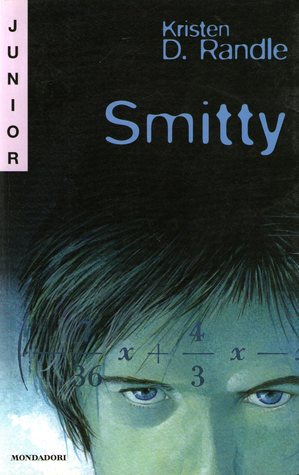
This is a big one. Maybe it should have been the first in the series.
Any time you have two characters you want to be close, give them a secret to share. There’s nothing better than being in each other’s confidence.
It divides your characters into distinct categories: Those who know, and those who don’t. And that is a huge deal. When you have two characters sharing a secret, it creates a bond of trust between them. It separates them intellectually from everyone else.
My examples for this topic come from a longtime favorite book that I recently re-read and reviewed: The Only Alien on the Planet. (You can find it on goodreads here).
This book is a particularly interesting example, because it presents a unique challenge. How can you possibly have a character that doesn’t talk to anyone or react to any stimulus? Smitty doesn’t have opinions, desires, or ambition. He doesn’t have any personality at all — by design. He goes to school, does his classwork, goes home, and does nothing. He moves through the world like he doesn’t exist.
Smitty also forbids anyone to touch him, which is the most universally accepted and widely used method for connecting two characters. At one point, Ginny makes the mistake of touching his arm, and he bolts.
“Wait,” I said, and I put my hand on Smitty’s arm.
He put the pencil down, shoved himself away from the table, got up, and left the room.
I looked at Caulder, then I stared at Smitty’s chair, then I turned around and looked at the door. He was actually gone. He’d just suspended operations and left.
Chapter 3 – The Only Alien on the Planet by Kristen D. Randle
And yet Randle is tasked with having this beautiful, distant hunk of wood bond with other people. How can she possibly do it?
The short answer: Secrets. Smitty’s whole life is basically one giant secret, and his walls come crashing down around him as Ginny, the main character, slowly starts to chip away at them. (Beware of major spoilers moving forward).

First of all, can we just appreciate for a second how awesome the Italian cover is for this book?
The First Secret
The first big secret occurs when the group attends a classic movie. Smitty abruptly gets up and leaves in the middle of the show, and the group has no choice but to follow him. The author has already established with the arm-touching scene that when Smitty is not pleased, he just leaves. But what could have possibly upset him? No one touched him. No one was even paying attention to him (they were all enjoying the movie).
I won’t spoil it too badly here, so if you want to know what upset him, you’ll have to read the book. The point is that after the group follows him out (what else can they do?), Ginny notices something shocking: Smitty is crying.
This doesn’t seem like much of a secret, does it? Usually when you think literary secrets, it’s drama and intrigue. It’s Elizabeth begging Darcy to keep quiet about her sister’s scandalous elopement for as long as possible. (Pride and Prejudice is another excellent example of using secrets to bring characters closer, by the way.)
But the best secrets in story-telling are more subtle than “don’t tell anybody.” And if you consider the definition I used earlier (some people know, and others don’t), Smitty’s emotional display more than qualifies. The world in general sees Smitty as basically a robot. Well, now Ginny knows for a fact that he is human. He feels pain, and he cries. She knows this huge, monumental truth that Smitty has been keeping secret his entire life: He’s alive in there.
Smitty still isn’t feeling close to Ginny (he doesn’t know she saw), but she is feeling closer with him. And the reader feels it.
The Second Secret
The next secret is shared between them. Caulder does a (fairly shitty) thing where he fishes some of Smitty’s discarded essays out of the trash and gives them to Ginny to read. Between the pages, Ginny finds a handwritten poem that Smitty copied onto a scrap of paper. This only adds force to her conclusion that Smitty has feelings as deep as anyone else.
She returns the poem to Smitty, effectively letting him know that she knows. It nearly breaks him. He has unwittingly allowed himself to get close to another human being, which is the very last thing he ever wanted. The ensuing panic attack is scary, but survivable. And both move on as if nothing ever happened.
But it’s too late. Ginny is already in the know, and they’re stuck together with that knowledge.
The Final Secret
The first secret was given away unknowingly. Smitty was aware of the second secret, but it was shared unwillingly. In the style of a satisfying relationship arc, Smitty shared the final secret with Ginny of his own volition: the lessons he’d learned about love from each member of his family. Again, I won’t spoil it here, but I do recommend reading the book. It goes into surprisingly succinct detail about how differently love is viewed between the lover and the object of that love. (I mean familial and platonic love here, nothing icky. This book is appropriate for middle grade and up, in my opinion.)
Armed with their shared secret and true bond, Ginny and Smitty face the Tibbs family as a unit. And that close relationship was masterfully nurtured throughout the book, using secrets as the main ammunition where there was a lack of any other option.
Again, I would like to point out an important difference between cheap secrets and real literary depth: Sharing any kind of secret between characters will help communicate closeness to the reader. But the true crux of the device is to divide the characters in two groups: “in the know” and “not in the know.”
It is very common for authors to do something like this: Jane wants to get to know Barry, but he’s distant. Barry finally feels comfortable enough to share some big secret. Jane feels gratified that Barry trusts her enough to open up.
This is a useful tool, but it lacks subtlety and is fairly boring on its own merit. The real drama from this situation would come from what Jane and Barry decide to do with their shared secret, how it effects them personally to have the secret between them, and the kinds of decisions it prompts them to make.
So use secrets with discretion (ha!). They are an extremely versatile tool when applied properly.
